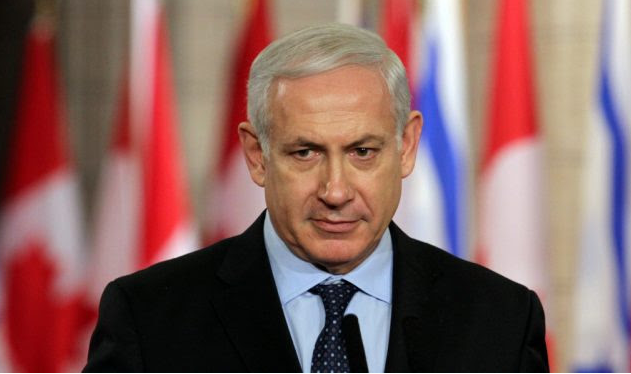Israel/Palestine and the Pottery Barn Rule of Toponymy
What stood for so long as the world’s chronically intractable problem may have been solved by default.

Lisa Van Dusen/For The Hill Times
April 29, 2020
As the infinity-loop melodrama of Israel’s political corruption capture careens on amid an amplifying pandemic crisis, it might be a good time to consider creative solutions to the region’s notoriously intractable problem.
As an editor trained on U.S. wire service desks handling foreign copy, a columnist writing about international affairs and, for a time, the PR for a Middle East peace building program, I’ve spent a lot of time in the past two decades immersed in the language of the Israeli-Palestinian conflict—a description which itself serves as an example of how the language of the story has evolved.
There was a time when I would have called it the Middle East Peace Process (in the days when Peace Process was capitalized, per AP style, because it was an official entity defined by the political patronage of a “quartet” of geopolitical actors—the United States, the European Union, the United Nations, and Russia. Seriously!).
After an unfortunate series of events, dictated largely between the lines involving incremental power shifts away from peace achieved through a two-state solution and toward security achieved through the installation of walls, checkpoints, and blanket surveillance, the label of a peace process that effectively no longer exists in a Middle East with more than a single ongoing conflict has been replaced by “Israel-Palestinian conflict” to describe what is less a conflict than a permanent limbo.
In the days of reasonable expectations of a two-state solution, the Palestinians were referred to in political terms as the Palestinian Authority (PA), because Palestine didn’t exist (or re-exist) as a political entity as opposed to as an area or region, hence the conflict. Nobody—due to a degradation of authority based on the PA’s own corruption and Israel’s technological superiority within a global power realignment of winners and losers from Hong Kong to Kashmir being anointed by technology and democracy obliteration—uses that term with a straight face anymore. The West Bank and Gaza were long referred to in geographical terms as the Palestinian Territories, pending the creation of a state that has now effectively been pre-empted by a cyberpurgatory.
Which brings us to the Pottery Barn rule of toponymy, a variation of Colin Powell’s “you break it, you bought it” Pottery Barn rule for invasions. Israel, thanks to the gobsmacking longevity of a certain prime minister, has effectively killed the possibility of a two-state solution by doubling down on asymmetrical power as a response to concerns about demography, democracy, and human rights, making the stateless area of Palestine part of its own political and geographical identity by default. Having broken the putative state of Palestine, Israel has bought the binomial nomenclature of “Israel/Palestine” as the only truly accurate and appropriate name for the conjoined entity that reflects that outcome.
Yes, quite a few Israelis, including the prime minister who has sentenced his country to a perpetual state of suspended election animation, will balk. And, sure, many Palestinians will be outraged, especially at getting second billing. But, as with all change, it will normalize over time, like a transplanted organ, a global economy under microbial siege or a weaponized, lunatic president. It’s a creative compromise between a two-state solution and a one-state solution: A binary yet contiguous statement of eternal inseparability.
As a hybrid toponym, it has everything—Israel, Palestine, that impish forward slash in-between standing in for the wall that has become such an integral feature of the place. Most of all, it finally conveys the truth of a coexistence that has so bedeviled scores of negotiators, Area A, B, and C surveyors, and coach tour operators for more than half a century. It possesses all the beauty of an elegant proof. It is, in fact, what it is.
You’re welcome. Shalom/Salaam.
Lisa Van Dusen is associate editor of Policy Magazine and a columnist for The Hill Times. She was Washington bureau chief for Sun Media, international writer for Peter Jennings at ABC News, and an editor at AP in New York and UPI in Washington.
